We are happy to bring you another coliving event summary.
Before you read the rest of this blog post, take a moment and reflect on how much of your daily life you spend on your phone, in front of the computer, watching Netflix, or Facebook-ing, etc. Then subtract the amount of time you spend walking in the woods, sitting outside, gardening, or interacting with nature in whatever other way. The result is your Nature Deficit.
The larger your Nature Deficit, the more out of balance with the life force of the natural world you are.
Connection to nature is important because it leads to concern for nature. As Mayer and Frantz say “if people feel connected to nature, they will be less likely to harm it, for harming it would in essence be harming their very self.”
We at Conscious Coliving believe coliving offers an opportunity to create a new living paradigm where we can connect more deeply with the natural world and live more sustainably. Environmental sustainability is one of the core aspects of our Conscious Coliving Manifesto. Our vision in regard to this aspect is that coliving spaces offer people “a way of living that is in harmony with the environment.”
And it is precisely around this topic which our third coliving meetup focused on. Hosted at Rent 24, the official title for this meetup was “How can coliving foster a reconnection to nature and environmental sustainability?”. A range of coliving operators and enthusiasts were present including Happy Pigeons, rent24, Vonder, Quarters, CocoNat and The Fizz. The event was co-organised by rent24, CocoNat, Co-Liv and Conscious Coliving.
We have already run meet ups this summer in Berlin for the other two core aspects of the Conscious Coliving Manifesto: Community and Wellbeing. Also, we will be running a final 2019 Berlin meet up on October 11th focused on “The Challenges of Coliving” as well as time for social drinks and networking. Operators and developers are exploring different coliving business models, and sustainability is now a must as part of these models’s core.
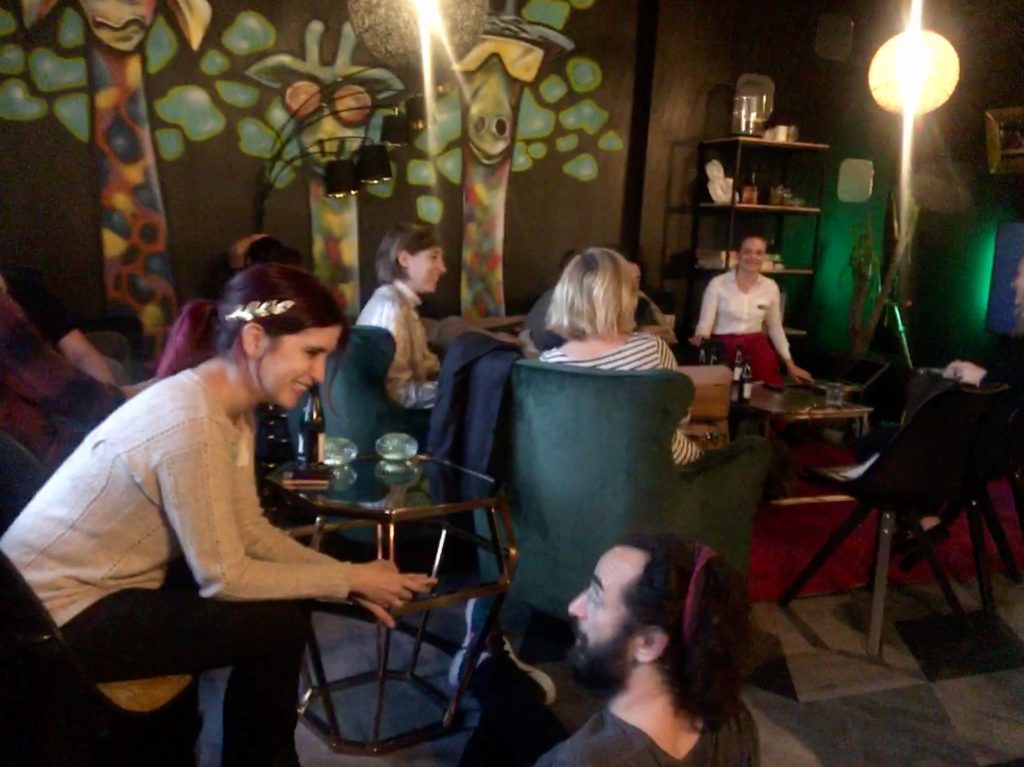
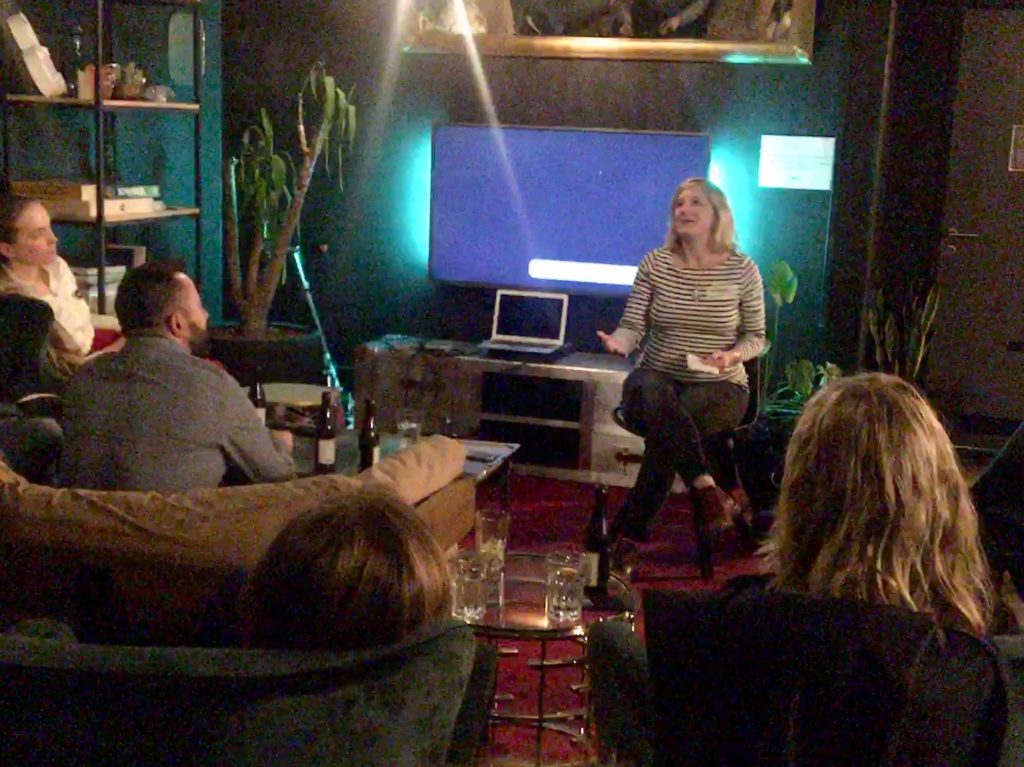
Keynotes on Sustainability
During this meetup we had several representatives speak.
First, Albina Progozhuk, Inbound/Outbound Sales & Event Executive at rent24, offered an overview of her company’s building, amenities, and operations. She openly admitted that environmental sustainability was barely considered when they opened, since many other factors took a higher priority at the time. However, she and her team are now open to exploring the topic and seeing how to incorporate this dimension across their design and operations, in particular as they continue to expand globally.
This case served as a really good example of how it takes just one or two brave people within a coliving space to begin to make positive change. The reality is that most coliving operators are juggling so many balls at the same time that environmental sustainability often gets left behind. But even one person championing the cause can make a difference.
Penny Clark, Head of Research & Sustainability at Conscious Coliving, was unable to attend in person but sent a video providing several intervention points for making coliving spaces more sustainable. These revolved around four main areas:
- Construction
- The building
- Resident practices
- Events and outreach.
You can listen to her go into detail on each one in the video clip below
Finally Julianne Becker, co-founder of CocoNat (which stands for community and concentrated work in nature), shared some of the sustainability practices that they employ at her space. These include: offering mostly vegetarian meals, cooking only for the number of people present, sourcing local wood, and transforming their energy system from oil to geothermal and solar.
This case highlights how some spaces are consciously choosing to prioritise what is good for people and the planet over quick scaling and growth. Located in the countryside about an hour outside of Berlin, CocoNat has a strong focus on reconnecting with nature and offers tours through nature as well as spaces to work outside.
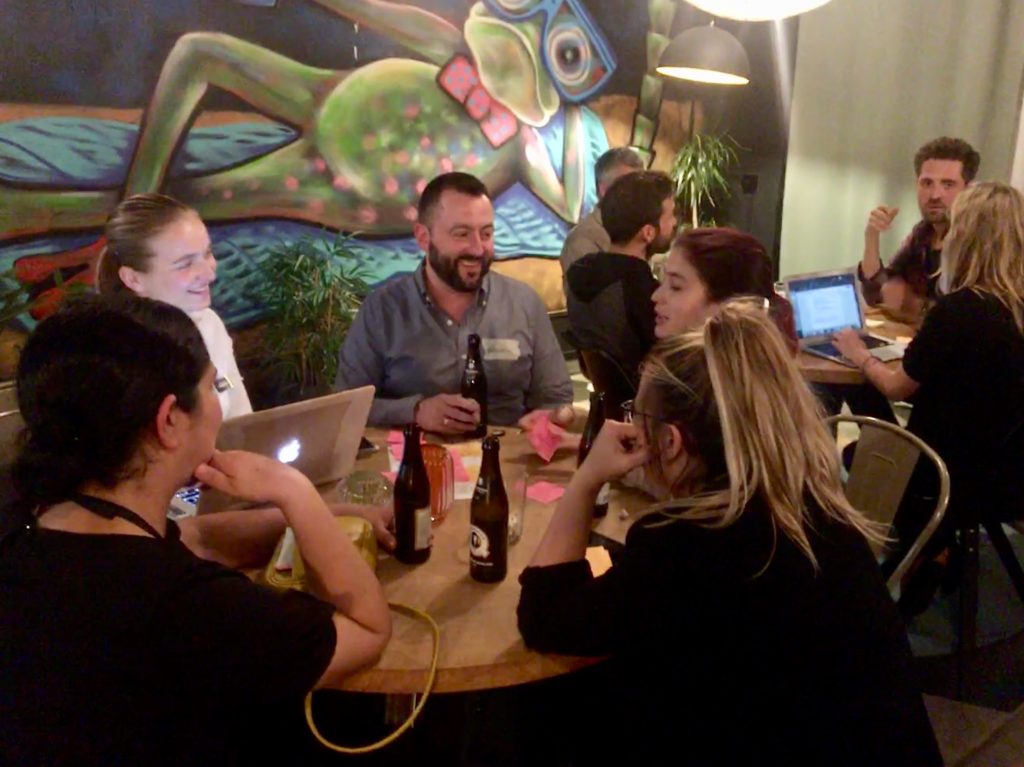
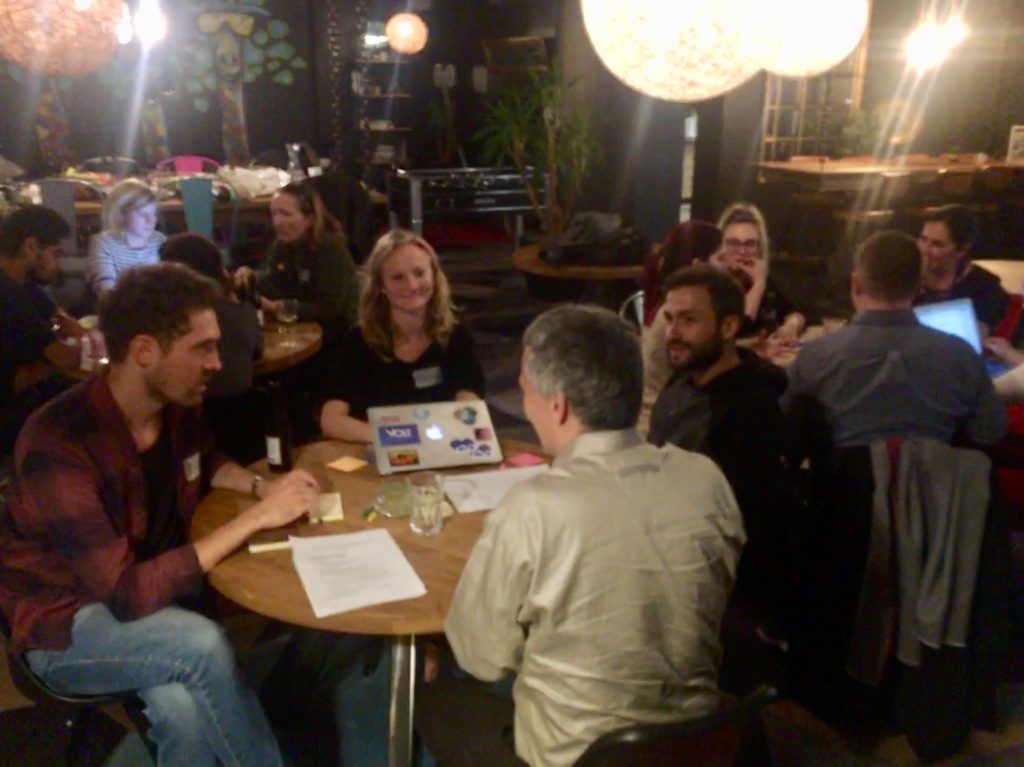
Gathering Collective Insight
After the speakers, we invited participants to break out into three groups to discuss the following questions:
- How can we design coliving spaces to encourage more sustainable behaviour and impact?
- How can we operate coliving spaces to encourage more sustainable behaviour and impact?
- How can we design and operate coliving spaces to foster a reconnection with nature?
The next section summarises the main points each group came up with.
Designing to foster sustainable behaviour and impact
- Consider “nudging” approaches to encourage sustainable behavior (e.g. creative light switches, fun staircases).
- Measure consumption (energy and water ) in a transparent way so that the community can see.
- Design in a flexible way, considering both current and future needs of community.
- Develop zoning and floor planning consciously (e.g. urban farm/garden in highly accessible areas such as near or in the kitchen).
- Label trashcans and recycling bins, providing knowledge on why and how.
- Incorporate circular economy principles in regards to suppliers (e.g. rent the service of light from Phillips, IKEA is beginning a subscription service for furniture).
- Consider that sustainability is not just environmental but also economic and social.
Operating to foster sustainable behaviour and impact
- Encourage sustainable community events (e.g. gardening events).
- Sustainable guidelines for all types of community events.
- Have a reward program to encourage sustainable routines (e.g. public transportation).
- Promote apps such as those that plant trees if you go running.
- Incorporate a sustainable lifestyle lens from a marketing perspective (e.g. advertising that your space is sustainable will attract like-minded people).
- Encourage growing food on balcony boxes.
- Teach about urban bee-keeping.
- Train community managers as role models for sustainable lifestyle.
- Organise playful competition between rooms/spaces for who is most sustainable (e.g. eating less meat).
Fostering a reconnection with nature
- Design a space for urban gardening.
- Activate urban gardening through awareness and education.
- Organise day-trips outside the city in nature.
- Organise green-space activities (e.g. canoeing, biking).
- Run workshops on how to grow food.
- Start an on-site worm compost worm unit.
- Show residents where there are green spaces nearby.
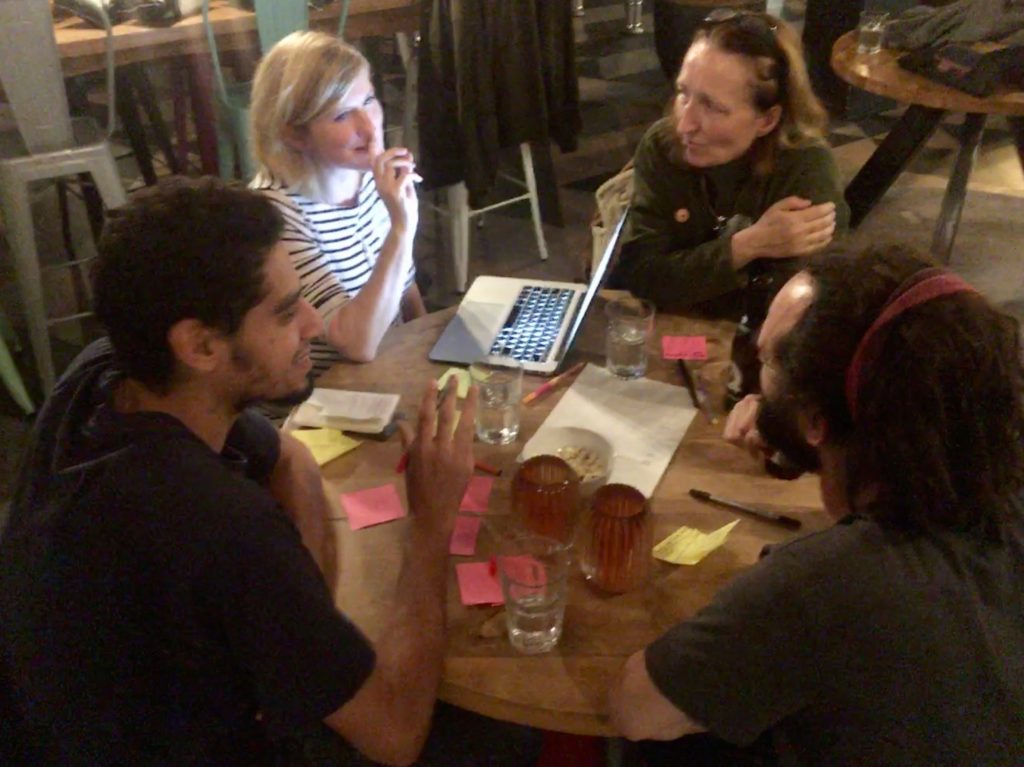
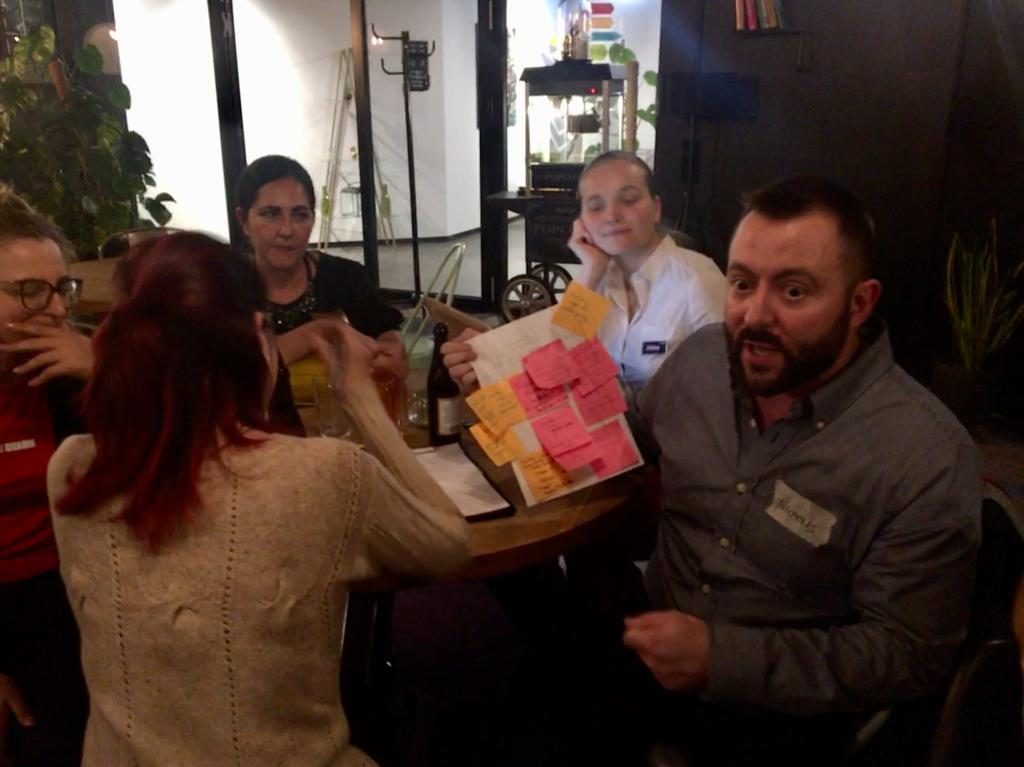
Wrapping Up
In summary, we were encouraged to see participants from this meetup so highly engaged and interested in this topic. As coliving consultants, we are thrilled to see so much enthusiasm and energy in the sector.
It is clear that coliving spaces have a myriad of priorities to focus on but it is time to bring sustainability and reconnection to nature up to the forefront.
People need it. The planet needs it.
Let’s work together and make it happen.
This article has been coauthored for you by:
Penny is Director of Research & Sustainability at Conscious Coliving. She has an MSc in Social Research Methods, and her PhD explores how shared living may enable lowered environmental impacts. She has consulted on numerous shared living projects, specialising in impact strategy, concept, and community. Penny has presented at conferences including the Co-Liv Summit, the Urban Living Festival, BTR360 and more. She has also authored publications in The Developer, Coliving Insights Magazine, the book Urban Communal Living in Britain, as well as being interviewed by the BBC and the Guardian about shared living.
Transformational Coach and facilitator. Trainer in mindfulness, sharing circles, and how to live and lead more consciously. Co-author of the Community Facilitation Handbook and the Coliving Apps & Tech Guide. Facilitates community engagement strategies.
Juan is a Communications Strategist, Project Manager, Systems Engineer, Team Coach and Executive Coach with an ontological/systemic approach. Co-author of the Coliving Apps, Software & Tech Guide and contributor of The Community Facilitation Handbook. He facilitates connection for individuals, teams, and communities.